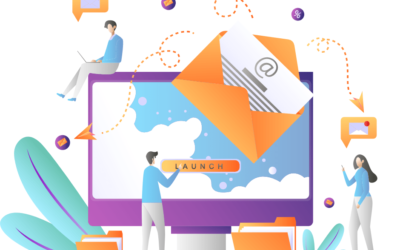In 2020, expect to see e-commerce businesses adopting marketing automation in a big way, and for good reason. It is set to create many new opportunities to deliver personalised services and improve customer experience – the digital marketer’s dream.
But new technologies emerge all the time and marketers need to keep abreast of developments in the space. We covered six major industry shifts in the first instalment of this two-part spotlight feature.
Read on and get ahead of the curve with the five bonus trends here.
#7 Artificially Intelligent Chatbots
In recent years, chatbots were used merely as alternatives to the FAQ sections of websites, typically equipped with a fixed set of answers for standard queries from users.
While this feature may have been helpful when chatbots started gaining popularity, getting the same automated responses can become a turn-off for return consumers looking for more accurate answers to unique and complicated questions.
In 2020, these chatbots will incorporate more of AI, allowing them to improvise their responses, based on the user’s profile, such as their behaviour or demographics.
Besides being able to answer customer queries, chatbots will also be able to recommend products or offer promotions, depending on the pattern of queries. This can facilitate the conversion of leads into opportunities and even close sales without a lot of human involvement.
#8 Automated Data Science
No longer just the domain of technologists, data science can be of use to business, to gain some real traction by combining statistics, data analysis, machine learning, and other disciplines to make sense out of large volumes of information or Big Data.
This year, marketers can expect to see a shift from predictive to prescriptive analysis, wherein instead of using data to merely “predict” future outcomes, they will be using data science to “prescribe” or draw up specific recommendations with regards to their business strategies. For example, not only will machines be able to predict customer behaviour or demand; they can also guide decision-makers in determining the best course of action and execute on it.
Add automation to your business formula, and you will be able to automatically engage with consumers, develop a conversion plan, and implement it with increased accuracy and not much manual intervention.
#9 Predictive Lead Scoring
Predictive lead scoring is another data-driven mechanism to help identify qualified leads based on a set of criteria.
Marketing automation solutions like HubSpot, for instance, have a built-in predictive lead scoring functionality that will parse thousands of data points and then instantly identify the best leads. Each lead is evaluated based on historical activity data and predictive modelling, and filtered for prospects that are most likely to convert.
The use of predictive modelling reduces the need for personal discernment, which can be prone to errors – like pursuing the wrong type of leads, for example. Instead, guided by the right customer profile will save marketers like you a lot of time and effort, and ultimately boost conversion rates. Once manual lead scoring is off the to-do list, you can focus more on the lead follow-up strategy and get the most out of the filtered leads.
#10 AI-Powered A/B Testing
Every marketing automation platform offers the use of split testing. Whereas a simple A/B test provides some understanding of customer preferences, its more modern counterpart will allow businesses to anticipate future site behaviour and take appropriate next-step actions. This eliminates the need to run several rounds of tests before reaching the right conclusions.
In 2020, more advanced forms of messaging, segmentation, and workflow management will be in the hands of marketers, powered by AI and machine learning. This means more sophisticated analytics for constructing and analysing patterns in visitor interactions and website behaviour.
#11 Automated Paid Ad Campaigns
Experts predict that by the end of 2020, around 80% of the online advertising process will be automated. Say goodbye to the usual manual tasks involved in running and optimising paid ads; AI software will be able to generate and run the best ads on its own.
This is not limited to content or links, but also extends to the ad creatives. Outside of digital advertising platforms, there will be native updates in social media sites that will incorporate these features.
This will save a lot of time and effort, plus you get a top-performing ad based on less testing and customer feedback.
In 2020, automation software will enable even more businesses to execute on strategies easier and faster, getting them closer to their target audiences at much less expense. Let’s have a chat or leave us a message below, if you’re looking to start or expand your use of marketing automation technologies in your e-commerce business.




0 Comments